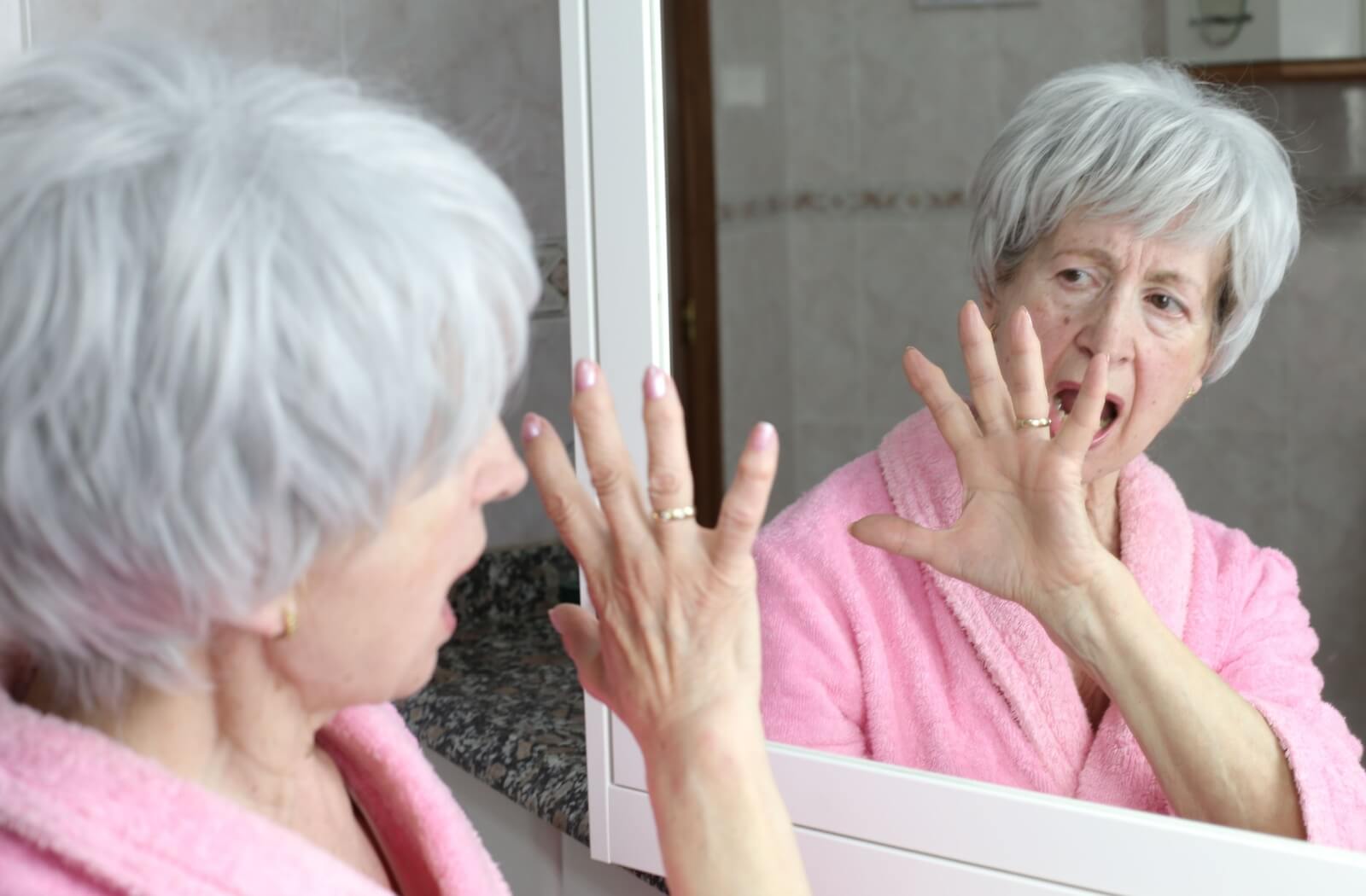Imagine sitting under the warm glow of a reading lamp, enjoying the comfort of a familiar book, when suddenly something feels off. You see something that isn’t there or hear a sound that no one else notices. For older adults, experiences like these can sometimes be described as hallucinations, which can be unsettling for both them and their loved ones.
Hallucinations in older adults can be caused by various factors, including medication side effects, cognitive changes like dementia, infections or imbalances in the body (like dehydration or UTIs), stress or isolation, and sensory changes such as vision or hearing loss.
Each situation is unique, and understanding the cause helps find the right support.
Understanding Hallucinations
First, what are hallucinations? Hallucinations happen when someone perceives —seeing, hearing, feeling, smelling, or even tasting—something that isn’t present. This might look like seeing shadows that aren’t there, hearing someone calling their name when no one else does, or feeling something brush past them while they’re sitting alone.
But here’s the important thing to remember—these experiences are real to the person having them. It is important to ensure every person feels supported in their moment. We encourage welcome open-hearted understanding to ease any confusion or fear that might arise.
Why Do Older Adults Experience Hallucinations?
The reasons why older individuals may experience hallucinations are as varied and complex as people themselves. While every situation is different, here are some things to keep in mind:
Medication Effects
Many older adults take a variety of medications, which can sometimes spark unexpected side effects, including hallucinations. When different medications interact or doses shift, they may trigger unusual sensory experiences. For example, certain sleep aids or pain relievers could cause disorienting visions or sounds. Monitoring and reviewing medications with a healthcare professional is always a good place to start.
The Mind’s Changing Landscape
Some loved ones living with dementia or cognitive challenges might experience hallucinations as part of their condition. This isn’t a failing on their part. Rather, it’s a reminder of how the brain can weave a fluid and sometimes unpredictable picture of the world. At Juniper, we gently guide each person with the care they deserve, helping them find calm and comfort in every moment.
Illnesses or Imbalances
Something as simple as an infection, like a urinary tract infection (UTI), can lead to sudden changes in perception, including hallucinations. Dehydration or imbalances in the body, such as low blood sugar, can also play a role. Addressing these underlying causes often brings relief not just to the body but also to the mind.
Stress & Isolation
Feeling anxious, lonely, or disconnected from others can sometimes heighten the chances of hallucinations occurring. Here at Juniper, we know the power of community—of gathering together for meals, programs, or shared conversations. When people feel connected, their spirits flourish.
Eyes & Ears on Aging
Changes in vision or hearing, often common as we live longer, can sometimes lead to misperceptions. Shadows might take on unfamiliar shapes, or distant noises may become harder to explain. It’s a reminder of how important proper check-ups and sensory care can be.
How Can We Respond with Empathy?

The key is to start with kindness. If your loved one is experiencing hallucinations, it’s not about correcting or dismissing the experience—it’s about being present with them and acknowledging their feelings. You might say, “That sounds worrying. I’m here with you. Can you tell me more about what you’re seeing or hearing?” This validates their experience while creating a safe space.
At Juniper, we teach our team members to meet every individual with openness, warmth, and a gentle understanding. Whether through a reassuring smile, a calming touch, or guiding words, we help anchor each person in soothing moments.
It’s also valuable to observe patterns. Do these experiences happen only at certain times of the day? After particular meals or activities? Tracking these cues can help caregivers and families collaborate with healthcare professionals to identify potential triggers or solutions.
Growing Comfort Through Connection
Hallucinations might seem unsettling at first, but at their heart is an opportunity to connect—to truly listen and be present. When we acknowledge the feelings of older adults, we reduce fear and foster trust, building a bond that says, “I see you, and I’m here to walk this path with you.”
Nurturing the spirit of life is about more than just solutions, it’s about embracing each person’s unique journey with genuine curiosity and respect. It’s about crafting spaces where your loved ones feel valued, secure, and celebrated—whether they’re enjoying a morning yoga class, diving into a vibrant art session, or savoring the peaceful moments in between.
Finding Light Through It All
When it comes to hallucinations, there’s so much more than meets the eye. Behind every sensory experience is a person—a person with dreams, joys, and memories. At Juniper, we believe in seeing the whole person, not just the moment they’re in. We celebrate their life, their individuality, and the community they help create.
If you or a loved one has questions or is seeking a supportive community to thrive in, Juniper Village at Forest Hills is here for you. Pull up a seat at our dining tables, unwind in the glow of our shared spaces, and discover how we nurture the spirit of life in every corner of what we do.
Together, we can continue living life fully and joyfully in every season. Contact us today!







